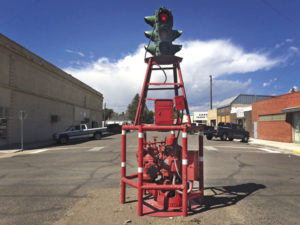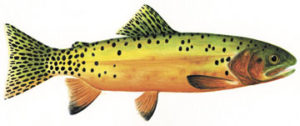By Peter Anderson
It is the gleaning season. Somewhere in the Bible, he recalls, the farmers leave the remnants of their harvest for the hungry. It is still so for those who know where to look. As the high aspens begin to turn, the sandhill cranes circle above the valley before settling into some shallow wetlands down by the dunes. They will spend the night there, safe from predators. Early in the morning, they will fly west across the valley to glean the leftover grains from vacant farm fields. In a few days, he will rattle by that same field in a beat up Chevy with New Mexico plates, scanning a dusty county road for russets jostled loose from the big potato trucks as they ride the ruts and bumps toward a warehouse in Monte Vista.
[InContentAdTwo] He likes to come north as the cranes rest and feed here before flying south to winter in the warmer valleys of the Rio Grande. Like them, he knows he will find food. And as the first snow dusts the high peaks in the Sangres, he camps along the western edge of the range, and burns pinyon and juniper until he has a nice bed of coals. Then he wraps a few potatoes in tin foil and lays them down in his fire. And later he peels back their blackened silver jackets, and slits them open, and slathers them with butter and chives. And he gives thanks for the humble mountain tuber, first tasted high in the Andes, now harvested in this mountain valley – Colorado Rose, Purple Peruvian, Rio Grande Russet.
Tomorrow morning, he will drive home to Espanola. And in a couple of weeks the cranes will follow. And he will hear them before he sees them as they emerge from some low storm clouds over the river.
There are small graces that he counts on every year about this time.
Peter Anderson writes about geographical and cultural edges in this column and in a new collection of flash prose and prose poems called Heading Home: Field Notes published by Conundrum Press (conundrum-press.com)



